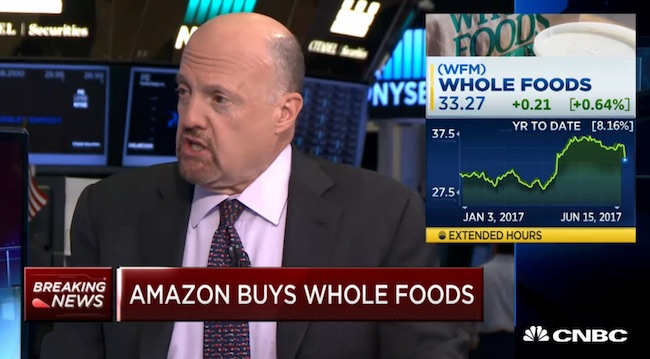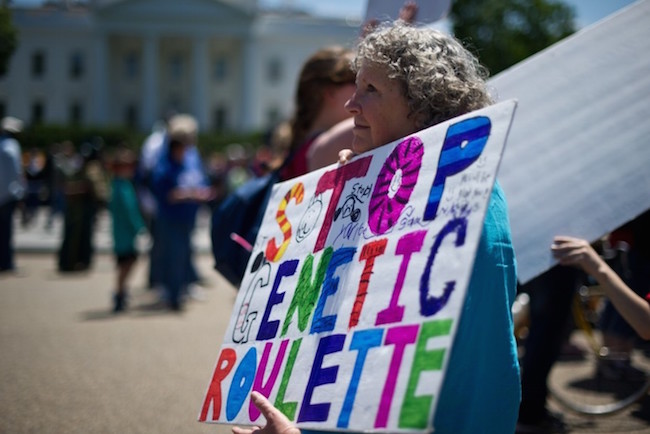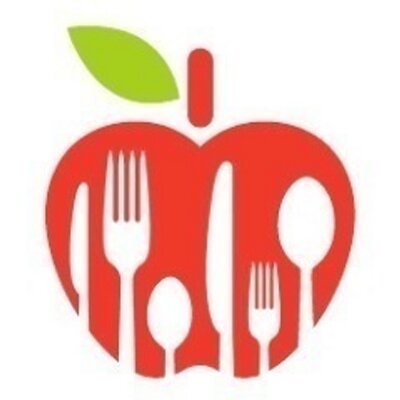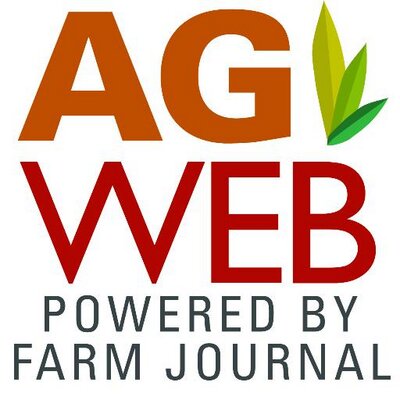
What Three Former Executives Would Say to the New Owner of Whole Foods
As the entire country has been digesting Friday’s enormous news of Amazon purchasing Whole Foods for nearly $14 billion, there has been no shortage of analysis, speculation, and commentary in the media about what this all means for the company, competitors, employees, consumers and society at-large.
On Friday, you received my Organic Insider Alert about how I believe this will impact the organic food industry.
Wanting to hear about what organic food companies thought of the deal, yesterday on Living Maxwell I put up the reactions of several CEOs and founders of small, medium and large organic brands.
And in the First Course below, I am sharing the three most thought-provoking articles about the acquisition that I have come across. They all made me stop and say “wow”.
In today’s Organic Insider, I wanted to do something different.
I approached three former senior executives at Whole Foods, who, combined, have many decades of experience not only at the company but also in the natural products industry. Additionally, they understand the DNA at Whole Foods as well as anyone.
So, I asked them, “You have five minutes, one-on-one, with Jeff Bezos. What do you say to him?”
Here are their answers.
Michael Besancon
Former Position at Whole Foods: Senior Global Vice President of Purchasing, Distribution and Communications
Currently: Advisor/Board Member
Do you think you bought Whole Foods? If so, you made a mistake. A big mistake.
You can’t buy an ideal.
You can’t buy a mission.
You can’t buy a movement.
You can’t buy a culture.
You can’t buy 100 niche markets.
You can’t buy 1,000 lifestyles.
That is the essence of the company. And you can’t buy that.
What you bought was 450 leases and some used equipment. And you got it on the cheap.
If you want it to be what it was, then you need to understand the things that you can’t purchase.
People don’t understand – some people internally at Whole Foods don’t understand – how that crazy, hippie, alternative lifestyle market became an icon.
It’s not a grocery store. Anyone can sell groceries. Many people have taken the model, replicated the design and done well with that.
But why do people drive past a half-dozen other supermarkets to go to Whole Foods?
Why do people choose to shop at Whole Foods when you can buy food wherever you want?
Because it is an ideal.
It was co-created by Whole Foods team members, vendors and customers. It’s more than a grocery store. If you don’t understand that, you overpaid for what you bought.
Whole Foods didn’t become an icon – the biggest thing in grocery with a market cap greater than companies five times as big – because we sold groceries.
What are you going to do about that? How are you going to deal with that?
Errol Schweizer
Former Position at Whole Foods: Grocery Executive
Currently: Advisor/Board Member
There are two things that I would like to talk to you about.
First, I am very concerned about how this deal will be good for employees of both companies.
Barclays wrote a report in March which said that Whole Foods lost about 10 million customers to Kroger over the previous 18 months. Over this time, there were layoffs and cost-cutting that affected store operations and customer service, including a big shift to part-time jobs, all of which contributed to lower comp sales.
Whole Foods has always valued team member happiness and had referred to team members as its “special sauce.” They have paid above-market wages, shared profits, gave great benefits and enabled employees to live a better life. Amazon, however, has not always been a leader in this respect and has been exposed for pushing its warehouse and delivery workers too hard, or replacing them with automation.
So, what is management’s approach to making sure that the team members in Whole Foods stores and facilities will share in the success that is to come? Will employees be replaced by artificial intelligence and drones? Will there be a place for the empathic, personal connections between staff and customers that have been a point of differentiation for Whole Foods for 37 years? What will you do to reinvest in the employees of Whole Foods and make this a win for them?
Second, Amazon buying Whole Foods validates the organic, Non-GMO and clean food movement. The future of food is what these customers are buying, and younger consumers are even more committed. Amazon gets that.
But based on the growth that organic and Non-GMO food is undergoing, we will need to see significant investment in farmland conversion, distribution and manufacturing to keep up with demand.
As it stands now, there are many serious gaps in the supply chain, from fresh produce to animal feed. Approximately 95% of corn in the U.S. is genetically-modified, and there is just not enough domestic organic corn production. So, we must import organic corn, resulting in cases of fraud and pricing pressure on U.S. farmers.
What will you do to guarantee and strengthen the supply chain, so it is not always an uphill battle to find ingredients and raw materials? How can you guarantee not only a level playing field for domestic organic farmers, but what will you do – on both a legislative and enforcement level – to make sure it is honest and transparent? Can we expect Amazon to commit to expanding organic farming acreage?
Or, will Amazon leverage its scale to compromise and weaken these hard-won standards?
Tim Sperry
Former Position at Whole Foods: Director of Grocery for the North Atlantic Region
Currently: Founder, The Tim Sperry Group
Do you know what you bought?
You bought 449 locations in the U.S. and some in the UK and Canada. You bought access to the highest profile consumer in the U.S.
This is not an accusatory question at all. I would love to hear you articulate what you think Whole Foods is?
Then, we will have an idea of what you might be thinking as you go forward.
Do you envision Whole Foods continuing to be a mission-driven company? Would Whole Foods sit inside of Amazon in the same way that Ben & Jerry’s sits inside of Unilever?
Ben & Jerry’s is still doing things that they have done for years. Will Whole Foods be allowed to do the same?
Also, is the GMO-labeling initiative still in place for 2018? What about your commitment to organic and fair trade?
Consumers and committed team members want to know.
We’ve been hearing that there won’t be any immediate changes with how the company does business. I hope that is true.
I was at Whole Foods until 2006, and when we did many of the regional acquisitions, we would leave the best things in place, allowing us time to learn.
(Photo credit: Wikimedia Commons)
 |
Have a great day! 
Max Goldberg, Founder |
Quick Hits
* In two separate pleas to use his power for the greater good, Alice Waters Tweeted to Jeff Bezos to do the right thing by American farmers and Annie’s President John Foraker called on him to eliminate food deserts in the U.S. by 2027.
* Yesterday kicked off the 10th Annual National Pollinator Week. To watch the film Keep the Hives Alive and to organize a screening near you, visit www.keephivesalive.org
* I will be attending the Fancy Food Show in NYC from Sunday through Tuesday. If you’d like to follow along from home, please be sure to watch my Instagram Stories (@livingmaxwell).
* And because of the Fancy Food Show, next week’s newsletter will be sent out on Wednesday, not Tuesday.
Weekly News Summaries


This is Food Deflation
By Jim Cramer
CNBC's Jim Cramer nailed it. This acquisition will result in price deflation for food, and it is something that the Federal Reserve needs to acknowledge.

Lidl May Be The Only One Who Can Stop Amazon
By Rachel Abrams and Julie Creswell
An Amazon-Whole Foods combination may not be an unstoppable force after all. German supermarket chain Lidl has been slowing Amazon's growth in Britain and is transforming people's standard of living there.

Prescription Drugs at Whole Foods? Don't Bet Against It
By Christina Farr
If the thought of having a pharmacy within a Whole Foods turns your stomach, prepare yourself. It has been reported that Amazon is looking to break into the $400 billion pharmacy market.


Gene-Editing is The Next Big Threat to Organic
By Caitlin Dewey
Move over GMOs. The next big thing organic advocates have to worry about is gene-editing technology, such as CRISPR-Cas9.

Why the Transitional Organic Program May Be Facing a Lawsuit
By Catherine Boudreau
The USDA has not approved its certified transitional program because of concerns over a lawsuit from The Western Organic Dairy Producers Alliance (WODPA), who thinks the department overstepped its authority.

Organic Researcher Chuck Benbrook Speaks Out Against Big Ag
In a fascinating interview, Chuck Benbrook, PhD, one of the country's leading organic researchers, talks about a wide range of issues, from CAFOs, conflicts of interest, GMOs and conventional agriculture controlling science.

Arkansas is Close to Banning Toxic Pesticide Dicamba
By Chris Bennett
The Arkansas State Plant Board is very close to banning the super-toxic pesticide dicamba because of complaints of drift, which have damaged many neighboring crops.


2017 U.S. Grocery Shopper Trends Report is Released
By Jon Springer
The Food Marketing Institute revealed in its 2017 U.S. Grocery Shopper Trends that consumers want transparency, wellness information, clear quality standards and fair treatment of employees.
Don't Go Looking for Nut Milk in Europe
By H. Claire Brown
Last week, The European Court of Justice ruled that vegan products, such as nut milk, can no longer be labeled as “milk,” “cheese,” and “butter," dealing a marketing blow to the plant-based industry there.

Organic Baby Food Company Yumi Closes a $4.1M Round
By Sarah Buhr
Launched by a former TechCrunch and Wall Street Journal reporter, Los Angeles-based Yumi secured a round of financing with some high profile Silicon Valley investors.
The material in this newsletter is copyrighted and may be reprinted by permission only. All requests must be in writing. Please use our contact form to request republication rights.
Newsletter Archive
Quick Hits
* In two separate pleas to use his power for the greater good, Alice Waters Tweeted to Jeff Bezos to do the right thing by American farmers and Annie’s President John Foraker called on him to eliminate food deserts in the U.S. by 2027.
* Yesterday kicked off the 10th Annual National Pollinator Week. To watch the film Keep the Hives Alive and to organize a screening near you, visit www.keephivesalive.org
* I will be attending the Fancy Food Show in NYC from Sunday through Tuesday. If you’d like to follow along from home, please be sure to watch my Instagram Stories (@livingmaxwell).
* And because of the Fancy Food Show, next week’s newsletter will be sent out on Wednesday, not Tuesday.
